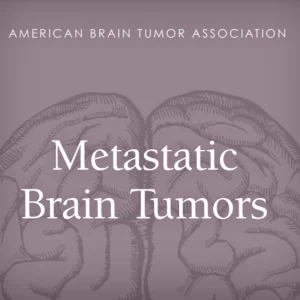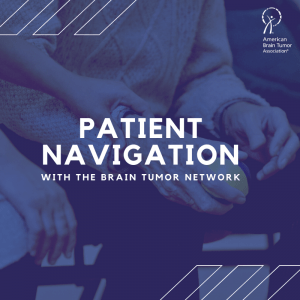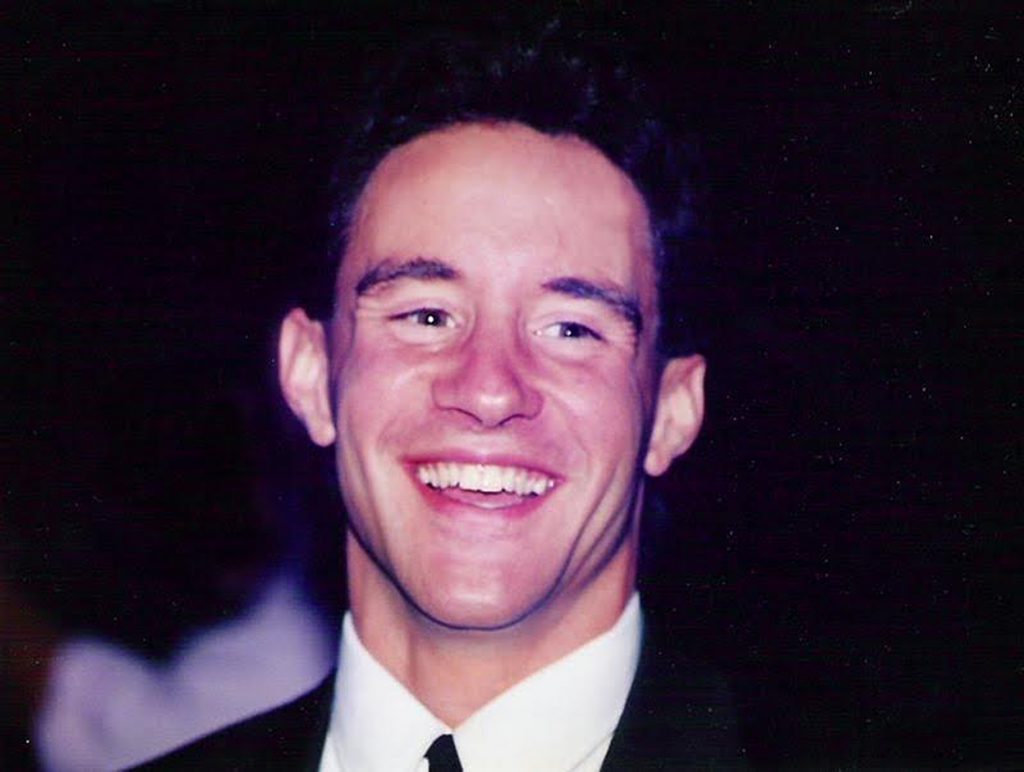
Paul Fabbri led a life devoted to helping others, and that’s no different in his legacy.
When Paul passed away at a young age from brain cancer, his close friends Bob and Jeff set out to keep their friend’s memory alive by creating an annual golf outing.
Twenty-five years later, Paul’s spirit shines bright as ever – not just through those who knew him, but the handful of brain tumor researchers who’ve received grants in Paul’s memory.
The All-American Kid
Bob Kruchten met his lifelong friend Paul Fabbri in the fifth grade. Paul’s family had just moved to Morton Grove, Ill., a northwest suburban Chicago town where he enrolled at St. Martha’s elementary school.
Bob said it didn’t take long for Paul to make an impression.
“Instantly, he was the best athlete, the best looking, the most popular with the boys and girls… just the proverbial All-American kid,” he said.
Paul and Bob immediately clicked, sharing a common interest in playing sports. Paul may not have been the tallest at 5 feet 7 inches, but he proved his athletic prowess in football, basketball, and baseball.
“I remember our coach saying, ‘Bobby, you get the rebound and pass it to Paul! I don’t want you doing anything else with it,’” Bob jokingly recalled.
No matter how competitive, Paul’s kind demeanor and sportsmanship never faltered.
“He had an amazing rapport with his coaches and was a born leader on the athletic field,” Bob said.
Paul met his other close friend Jeff Fougerousse at the local community center where Jeff worked. Despite a 10-year age gap, Paul had no issue keeping up with Jeff on the court.
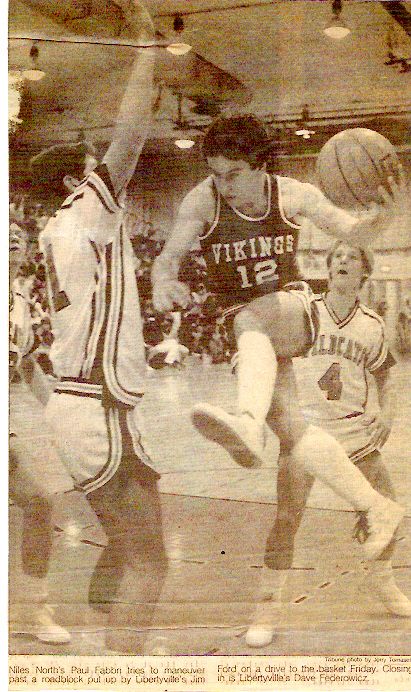
“Instantly, Paul was the best athlete, the best looking, the most popular with the boys and girls... just the proverbial All-American kid."
— Bob Kruchten, Paul's lifelong friend and ABTA board member
Paul easily made friends wherever he ventured, but his closest relationship was with his younger brother Billy, who was born with Down Syndrome.
Paul aspired to be more than just a brother to Billy, but a mentor, protector and support system. Along with introducing Billy to athletics, Paul instilled in his brother important life skills like how to treat others with kindness and respect.
Ultimately, Paul made several personal sacrifices to put family first, which included passing up a full-ride athletics scholarship.
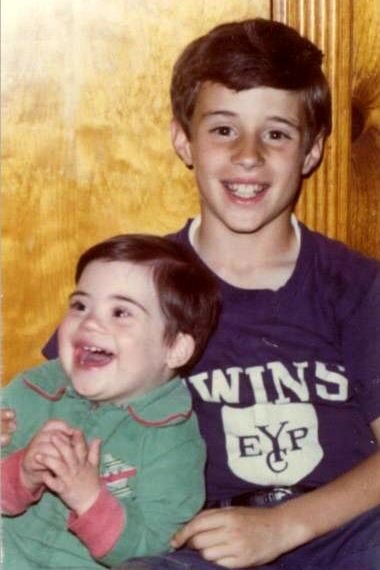
“I remember Paul saying, ‘I can’t do it. I can’t bear the thought of my parents taking care of Billy on their own,’” Bob said.
So instead, Paul took a job after high school at a local company called Design Studio where he installed high-end furniture for prestigious clients, including some of Chicago’s top sports players. As a result, he had plenty of fun work stories.
Looking back, friends say Paul would make the same choices all over again; he knew his priorities and kept them front and center.
“Growing up, Paul’s entire focus was Billy – who’s now 47 years old and thriving. That’s in no small measure because of Paul’s 24/7 dedication,” Bob said.
'How could this happen?'
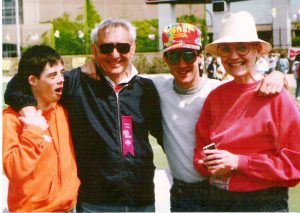
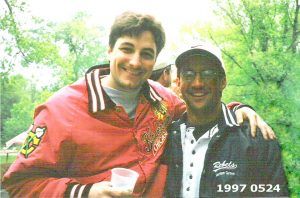
At 21, Paul was in the prime of his life working full-time, lifting weights at the gym, and spending his free time with Billy. An unexpected event in the spring of 1988 turned everything upside down.
One day, Paul collapsed at the gym and soon discovered he had an aggressive form of brain cancer, which he learned could progress into a glioblastoma over time.
“Me and his friends were all asking, ‘How could this happen to him?’ He was the picture of health,” Jeff said.
Paul quickly had surgery to remove the tumor and then received radiation therapy. By all accounts, Paul’s treatment was a success; he went on to enjoy several good years where he worked, continued supporting his family, and even moved into his own condo.
Unfortunately, Paul’s tumor recurred several years later as a glioblastoma, and that led to him having three more brain surgeries.
“He recovered, but to a lesser extent each time,” Bob said. “But never once did Paul say, ‘Why me? This is terrible. Why is this happening to me?’ He just grinned and beared it.”
Paul may have struggled in silence, but he inspired many with his will to live and courage to keep fighting.
“Near the end, Paul’s biggest concern was his parents and taking care of Billy,” which Bob and Jeff assured him they would do on his behalf.
Paul passed away on June 13, 1998, following an arduous 10-year battle with brain cancer. He was 31.
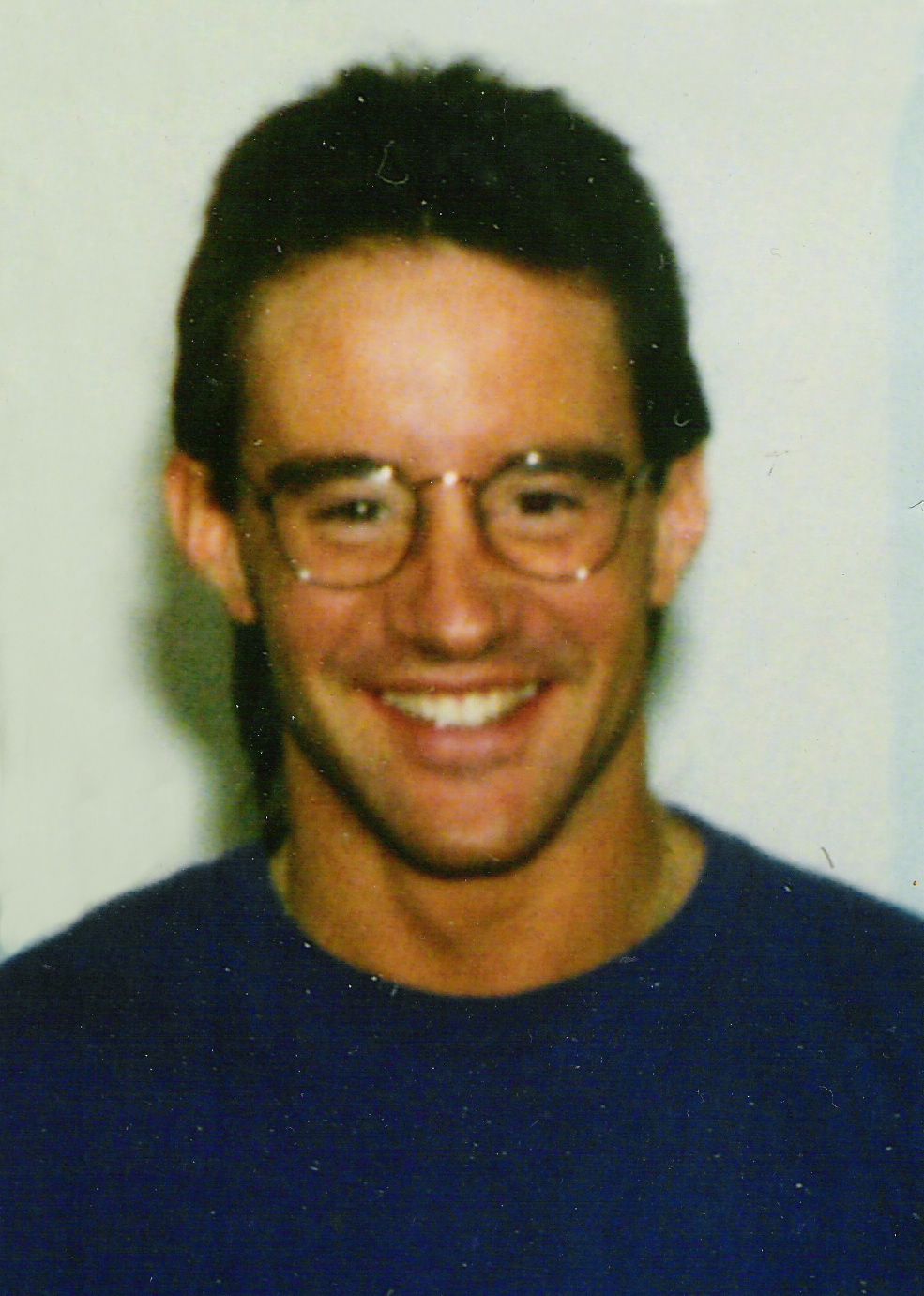
'We've Got to Do Something'
Paul’s memorial service brought out hundreds, if not a thousand loved ones to remember the unforgettable legacy of Paul Fabbri.
“You could just feel the impact of the relationships Paul had and the impact he made on people as a whole,” Jeff said. “At the end of the service, we put our heads together and said, ‘We’ve got to do something to carry on Paul’s memory.’”
Bob and Jeff teamed up with their local park district to launch the first Paul Fabbri Memorial Golf Outing just two months later in August of 1998. They chose to donate proceeds from the event to fund brain tumor research grants through the ABTA Research Program.
Their grassroots golf outing initially garnered about a hundred golfers and banquet attendees, but the annual event has grown significantly in both attendance and impact.
Since its inception, the Paul Fabbri Memorial Foundation has awarded $662,000 in research grants in Paul’s name.
“The number of people over the years who either had a brain tumor, had a family member with one or lost someone close, the connectivity of ABTA has been very valuable,” Bob said.
Since its inception, the Paul Fabbri Memorial Foundation has awarded $662,000 in research grants in Paul’s name.
Bob and Jeff say they’re fortunate to meet several of the researchers they’ve helped fund in Paul’s memory. They also have witnessed how the research field has evolved.
“Early on, when you were diagnosed with GBM, you were told you only have a couple years. Nowadays, people can see their lives extend beyond that because of advances in research and medicine in a broad perspective,” Jeff said.
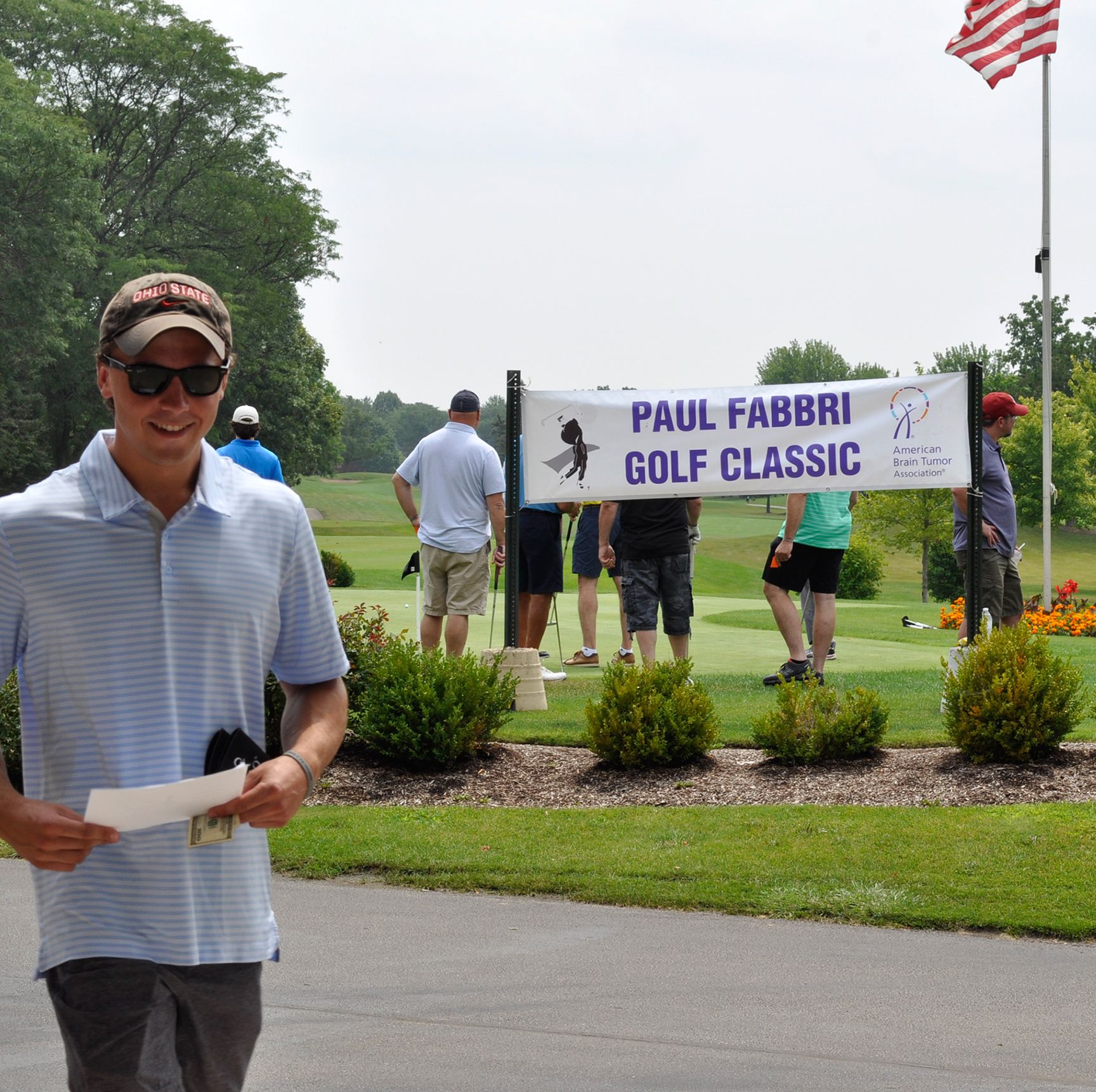
Extending the Impact
Although they’ve made a huge footprint, Bob and Jeff’s golf outing isn’t their only mission-driven endeavor. Both have also served on the ABTA Board of Directors. Jeff served on the board for more than 10 years as a member and Chairman before passing the torch to Bob, who is serving on the current board.
Both say they wanted to have a voice in moving the ABTA mission forward, including the expansion of patient support services and research funding.
“There truly is a vision of where we want to go and what we want to achieve… events like our golf outing are the building blocks to get us where we want to be,” Bob said.
Bob and Jeff say they hope Paul’s story will inspire others to host their own event through the ABTA Fundraise Your Way program, which allows individuals to create their own tribute event or celebrate a special occasion while supporting crucial brain tumor research.
“Whether you create a lemonade stand or make your own golf outing, Jeff and I have talked to many survivors of those lost to brain tumors who are very passionate,” Bob said.
Jeff says it all starts with one person who has an idea and a passion.
“Never doubt that a small group of thoughtful, committed people can make a difference,” he said.
Bob and Jeff say they plan to continue their annual event as long as they can.
“Never doubt that a small group of thoughtful, committed people can make a difference."
— Jeff Fougerousse
“We hope when we’re gone from this world, the Paul Fabbri Memorial Foundation will remain active, and our kids will carry it on and do great things,” Jeff said.
The 25th Anniversary Paul Fabbri Memorial Golf Outing takes place on Saturday, August 6 at White Deer Run Golf Club in Vernon Hills, Ill. Learn more about the event and the Paul Fabbri Memorial Foundation here.
You Can Fundraise for Brain Tumor Research Too
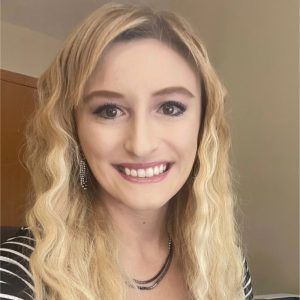
Jessie Schlacks
Jessie is Managing Editor of the bi-monthly e-newsletter MindMatters. Submit story ideas or questions to jschlacks@abta.org.



